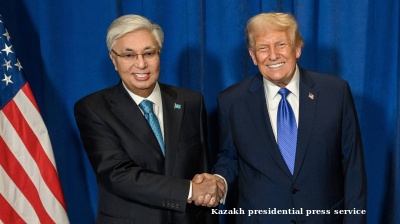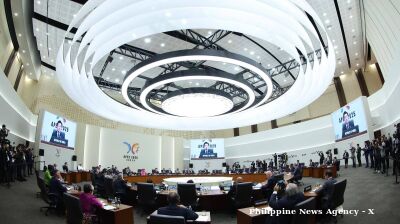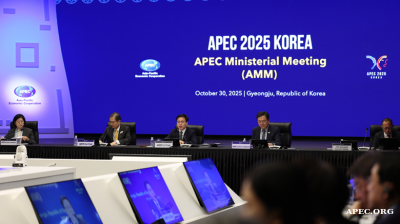Dealing with Europe isn’t about achieving success; it’s about concealing failure - or so went the line on a 2013 remake of the popular 1980s satirical political sitcom classic from the UK – Yes Minister.
A one time pun used to demonstrate the ineffectiveness of the European Union’s very existence at times, it has become a reality when applied to EU dealings with Asia.
Few Asian policymakers would dare say this on-record of course. Increasingly, however, terminology to this end is referred to across Asia - in corridors from Seoul to Singapore, Mumbai to Manila. It is no doubt regularly whispered in ministries after yet another round of “constructive but inconclusive” talks with Brussels.
Europe and the very concept of a union-based body that 15-20 years ago was suggested as a model for a future ‘Asian Union’ is now dead in the water as far as most in Southern, Eastern and Southeastern Asia are concerned.
Once viewed as the sensible pillar of global order - patient, principled, predictably technocratic – the European example has lost much of its lustre in Asia. Not because the region rejects European values or resents European market access, but because the gap between what Europe promises and what it delivers has grown uncomfortably wide.
The result is an emerging diplomatic habit in Asian capitals: masking European underperformance in the polite language of partnership, even as political leaders and hundreds of millions across Asia privately recalibrate expectations downward.
Where Washington and Beijing compete visibly - often aggressively as recent US tariff and rare-earth spats have demonstrated - Europe competes by drafting frameworks and circulating visions. Theory reigns, practicality and adaptation are rarely seen.
Because of this, Asia, pragmatic to its core, is increasingly unimpressed. In a region powered by speed and scale, Brussels looks more like the capital of PowerPoint geopolitics still being run on Windows 95.
Trade ambivalence, not trade ambition
In large part though, the EU still looks in the mirror and prides itself on being a trading superpower – and it is to some extent, on paper by virtue of sheer numbers in combined population. Yet its performance in Asia suggests a system more comfortable with process than outcome.
The EU–ASEAN trade vision, launched in 2007, has delivered bilateral bits and pieces rather than the promised comprehensive pact. Deals with Singapore and Vietnam exist - barely - while negotiations with Indonesia and others drag on endlessly, hostage to European domestic sensitivities.
The message to Asian negotiators is clear: Europe values access but insists partners obey its often dust-covered regulatory catechism before earning it. To do so, even if willing, can takes years. For nations that have concluded pacts with the US, China, the UK, Australia and within mega-agreements such as CPTPP (Comprehensive and Progressive Agreement for Trans-Pacific Partnership) and RCEP (Regional Comprehensive Economic Partnership), Brussels’ pace feels almost antiquarian.
Remember walking with an elderly relative to the local shops as a youth, slowing down so they don’t get out of breath? That is what it feels like for Asian economies expected to slow down for European grandparents struggling to keep up. The EU speaks of “strategic autonomy”; Asia increasingly hears “strategic hesitation.”
Investment diplomacy minus capital muscle
Part of this sees Europe talking grandly of Global Gateway, the 2021 plan by The European Commission and the EU High Representative to impact smart, clean and secure links in the digital, energy and transport sectors while strengthening health, education and research systems across the world. More widely known – and far more effective to date is China’s Belt and Road Initiative.
Yet in Asia, Brussels’ flagship programme resembles a thumb-eared coffee table brochure more than a blueprint. Announcements outpace execution. Financing is slow, often conditional, and cautious in a manner seen as the economic equivalent of arriving at a construction site with an environmental impact report and a lecture, while others arrive with cranes and concrete mixers.
To Asian governments juggling development, digitisation and decarbonisation, Europe’s position as a high-minded banker offering limited funds and unlimited paperwork is hardly enticing despite the best efforts of EU representative offices in at least 13 cities across Asia.
This is not an argument for recklessness or opaque lending; transparency matters. But Europe cannot and should not expect gratitude for initiatives that never leave the planning table – and if focussed on value for money, could quite easily consolidate several of the aforementioned 13 or more offices given the lack of return they offer.
Regulation ≠ foreign policy strategy
To this end, Europe’s self-image as the global setter of standards, the so-called “Brussels effect” may play well across the EU. It is seen in much less complimentary terms in Asia.
Asian exporters, especially in manufacturing economies, increasingly view the EU’s regulatory assertiveness as disguised protectionism. The Carbon Border Adjustment Mechanism, a masterpiece of bureaucratic incompetence which, in simple forms, makes foreign producers pay a carbon cost similar to EU firms, if they want to export to the European Union, whatever its climate intent, is widely interpreted as a trade wall dressed in green paint.
No Asian leader worth his or her salt disputes the urgency of emissions cuts. What they contest is Europe’s habit of unilaterally imposing rules while offering little financial transition support and even less diplomatic patience. Rules without partnership as colonialism across Asia for centuries proved, breeds resentment, not alignment.
One foot in the grave
Admittedly though, Europe’s Indo-Pacific strategy is rhetorically sound. But rhetoric is not reach.
When Myanmar imploded, European condemnation arrived swiftly; meaningful leverage did not – and has not yet been seen to make any difference to what is happening there. When tensions rose in the South China Sea, Europe sent statements, and the occasional frigate - while Beijing rewrote realities on the water. Moves since the early 2000s to realign Japanese bases in Okinawa to accommodate the UK’s Royal Navy ships - then a leading EU member before London saw through the charade and BREXIT came about - are seen as of little use while Taiwan and the Philippines are threatened on a daily basis by Beijing, and Brussels sits idle.
Natural disasters such as typhoons, earthquakes and tsunami, often seen packages full of ‘thoughts and prayers’ arrive in Asia – but little else. And thoughts and prayers do little to fight off disease or fill bellies.
Security cooperation with other regional leader in Tokyo and Canberra may carry some meaning, but across ASEAN and South Asia proper, Brussels feels more like a commentator than a participant.
Even in critical areas such as digital governance, supply chain resilience and green technology, progress is incremental at best. Europe insists it is “engaged.” Asia increasingly believes it is merely present – and not fully aware of the pace at which the Asian century is progressing. It is no different to introducing your average European granny to BLACKPINK, BTS et al, and expecting a response.
Europe’s crisis is not relevance but reliability
As lethargic as the EU is in its dealings across Asia, the region does not ask Europe to behave like the United States, nor to mimic China’s infrastructure blitz. What the region seeks is consistency, clarity and seriousness.
At present, the European Union is a continent consumed by its own emergencies: Ukraine, energy shocks, agricultural protests, industrial protectionism, and domestic political fragmentation. These are legitimate crises, but each drains Europe’s bandwidth and credibility abroad.
As such, to Asian partners, the EU is beginning to resemble a once-influential board member whose contributions have become theoretical, whose attendance is sporadic, and whose voice, while still respected, no longer carries the weight it used to. It certainly no longer shifts outcomes.
Asia is too polite to say it out loud
European diplomats in Asia rarely receive harsh rebukes though; the region prides itself on courtesy. But courtesy should not be mistaken for confidence or even friendship.
Europe is now being politely accommodated in Asia when its diplomats turn up individually or as part of larger delegations on a jolly to the ‘Far East’, rather than actively sought out. European political figures are welcomed as a familiar guest invited out of habit, and one who speaks elegantly about future cooperation but never actually brings the dish they promised.
The paradox, however, is that the world needs European standards. The world needs Europe’s legal expertise and insistence on transparency and rules. But to be taken seriously in Asia, Europe must rediscover the courage to deliver, not merely declare.
Asia has moved on to execution. Europe is still editing its initial policy draft.
Features
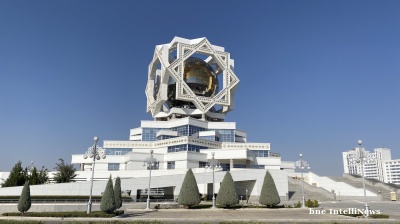
Washington has a new focus on a Caspian energy play
For most of the last three decades since winning independence, Central Asia has been a bit of a backwater. Not any more. The Trump administration is becoming more focused on Turkmenistan's vast gas reserves and can smell money and power there.

BOTAŞ and Turkey’s hub ambition: from “30-year dream” to cross-border reality
For Ankara, the symbolism is as important as the molecules: Turkey’s energy map is shifting from end-market to hub.
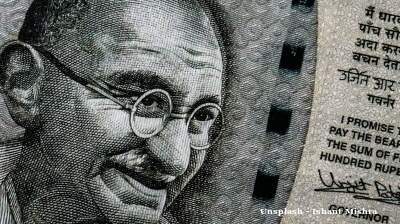
Indian bank deposits to grow steadily in FY26 amid liquidity boost
Deposit growth at Indian banks is projected to remain adequate in FY2025-26, supported by an improved liquidity environment and regulatory measures that are expected to sustain credit expansion of 11–12%
